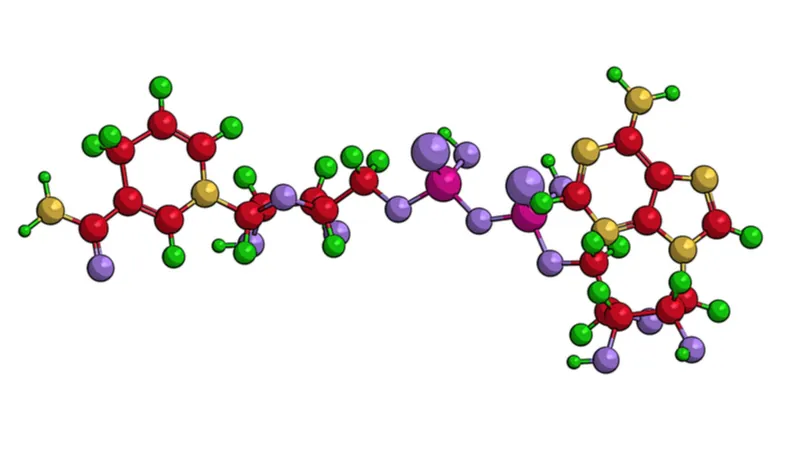NMN Reduces Metastasis in Difficult Breast Cancer Model
- Sirtuins appear to be a large part of the reason why.

In a new paper published in Nature, scientists have found that raising NAD+ levels via supplementation with nicotinamide mononucleotide (NMN) activates SIRT1 to dampen metastasis in mouse TNBC models [1].
A double-edged sword
NAD+ is a ubiquitous co-enzyme that facilitates numerous processes in our body, from energy production to DNA repair. Its levels decline with age, and its supplementation via precursors (usually NMN or NR) has shown multiple health benefits in animal models and humans.

Read More
However, like many biomolecules, NAD+ is a double-edged sword, including its self-contradictory relationship with cancer. On one hand, NAD+ is used as fuel by many types of cancer cells [2]. On the other hand, it boosts anti-cancer immune response. NAD-dependent enzymes such as sirtuins and PARP also seem to have a context-dependent effect on cancer [3].
Here, the researchers studied the effects of NAD+ on triple-negative breast cancer (TNBC). TNBC cells lack the three common receptors that are usually found on the surfaces of breast cancer cells, which limits therapeutic options.
NMN slows migration and invasion
First, the researchers generated primary tumors by injecting HCC1937 cancer cells, a common model of TNBC, into the mammary fat pads of immunocompromised mice. Continuous treatment with NMN significantly impeded tumor growth and metastasis. Similar results were obtained using actual TNBC cells taken from a cancer patient.
The researchers then proceeded to study NAD+ metabolism in vitro and found that NMN supplementation rapidly increased intracellular NAD+ levels. While the treatment did not affect the proliferation of cancer cells, it slowed their migration and invasion.
RNA sequencing of tumor samples revealed that NMN supplementation led to the activation of genes involved in longevity-regulating pathways and glutathione metabolism. Glutathione is probably the most important antioxidant that humans produce [4].
The role of SIRT1 activation
Recent studies have shown that some protective effects of NAD+ might be attributed to its regulation of SIRT1, a member of the sirtuin family. The researchers conducted analysis of several existing large datasets and found that TNBC was associated with lower SIRT1 levels, and the mRNA expression of SIRT1 was negatively correlated with the severity of breast cancer. Using this data, the researchers also showed that breast cancer patients with higher sirtuin levels had longer overall survival and better relapse-free survival rates. SIRT1 levels were also lower in high-metastatic versus low-metastatic TNBC cells.
The invasion potential of TNBC cells was significantly decreased by two different SIRT1 activators, including resveratrol, a molecule popularized by David Sinclair’s research. In this study, resveratrol proved to be a more potent downregulator of TNBC cell invasion than the second molecule, CAY10602. However, both compounds failed to affect TNBC cell proliferation rate. SIRT1 inhibition had the opposite effect on migration and invasion.
Next, the researchers genetically engineered TNBC cells to stably express SIRT1. Compared to regular TNBC cells with impaired SIRT1 production, the in vivo models based on SIRT1-expressing cells produced significantly less lung metastases. Similar results were achieved with NAD+ supplementation. However, this effect was abrogated by SIRT1 knockout.
Mediation of antioxidative activity
Since NAD+ treatment upregulated genes involved in glutathione metabolism, the researchers turned their attention to oxidative stress. The production of reactive oxygen species (ROS), which cause oxidative stress, was decreased both by NMN treatment and by SIRT1 overexpression. Those effects were recapitulated to some point by the ROS scavenger NAC. Interestingly, previous research suggests that ROS promote metastasis in cancer [5].
The researchers then discovered a downstream target of SIRT1 that might be responsible for its anti-cancer effect. The protein p66Shc is known to promote ROS production when it is phosphorylated, but SIRT1 can block its phosphorylation. When p66Shc phosphorylation was blocked by other means, the results resembled those of NMN supplementation and SIRT1 overexpression.
Conclusion
NAD+ and SIRT1 have ambiguous, context-dependent relationships with cancer. This study suggests that specifically in the context of triple-negative breast cancer, raising NAD+ levels by NMN supplementation activates the SIRT1-mediated antioxidative response, which might prove useful in treating this stubborn subtype of breast cancer.
Literature
[1] Jiang, Y., Luo, Z., Gong, Y. et al. NAD+ supplementation limits triple-negative breast cancer metastasis via SIRT1-P66Shc signaling. Oncogene (2023).
[2] Yaku, K., Okabe, K., Hikosaka, K., & Nakagawa, T. (2018). NAD metabolism in cancer therapeutics. Frontiers in oncology, 8, 622.
[3] Cantó, C., Menzies, K. J., & Auwerx, J. (2015). NAD+ metabolism and the control of energy homeostasis: a balancing act between mitochondria and the nucleus. Cell metabolism, 22(1), 31-53.
[4] Kerksick, C., & Willoughby, D. (2005). The antioxidant role of glutathione and N-acetyl-cysteine supplements and exercise-induced oxidative stress. Journal of the international society of sports nutrition, 2(2), 38.
[5] Porporato, P. E., Payen, V. L., Pérez-Escuredo, J., De Saedeleer, C. J., Danhier, P., Copetti, T., … & Sonveaux, P. (2014). A mitochondrial switch promotes tumor metastasis. Cell reports, 8(3), 754-766.







